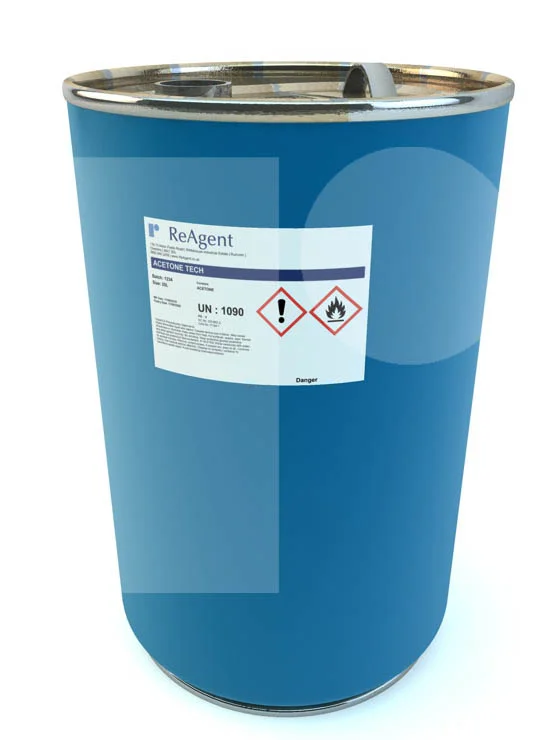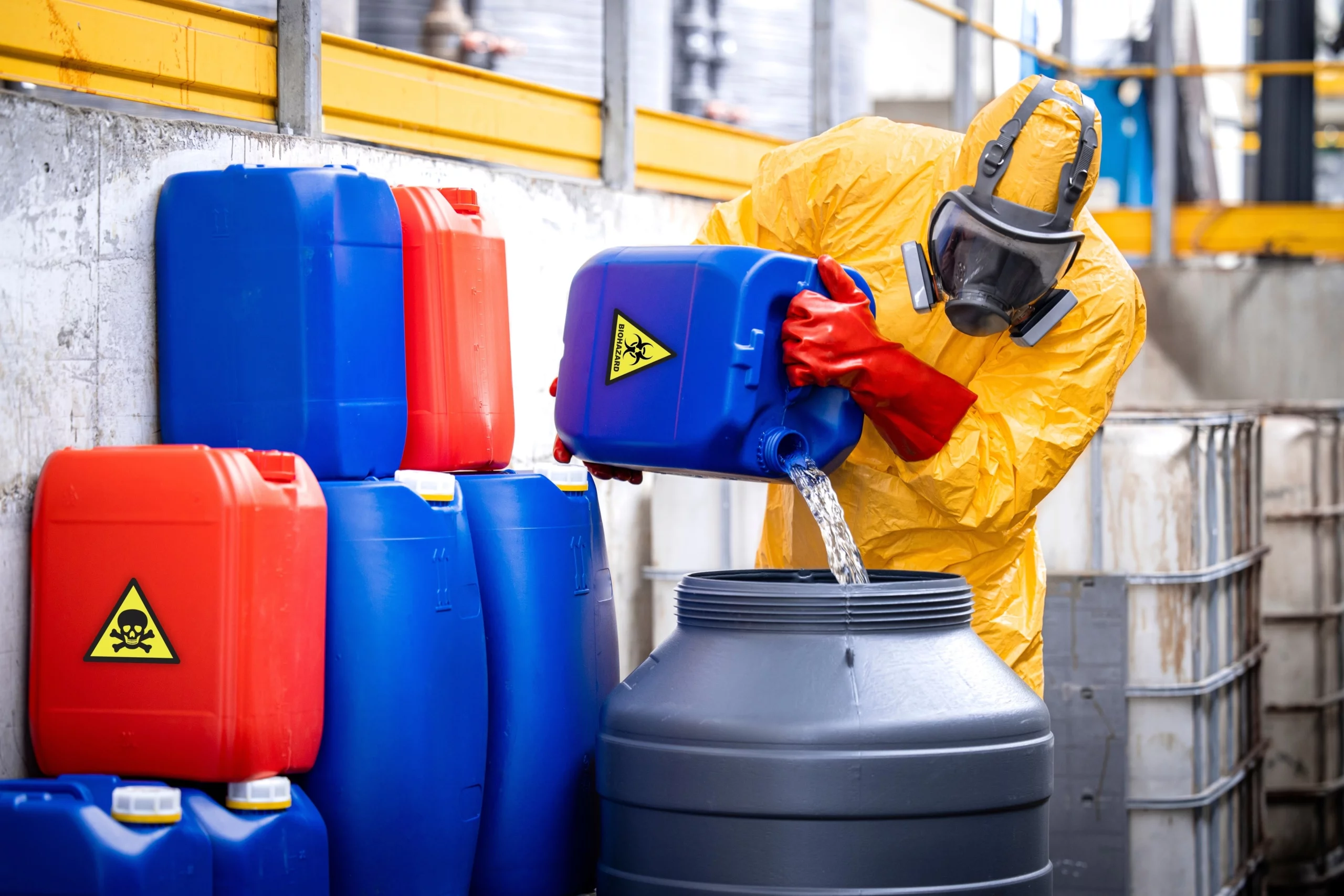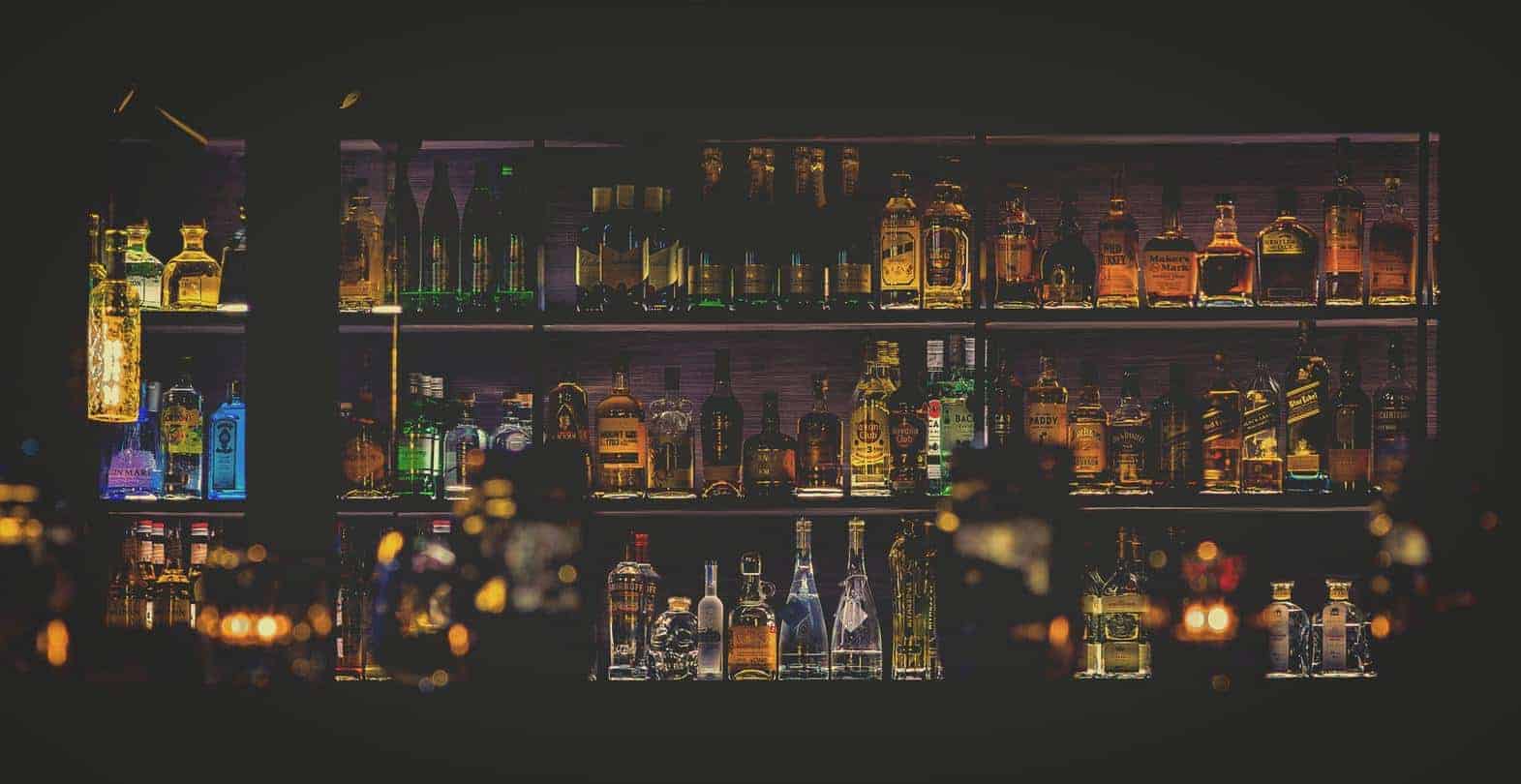-

Acetone
3 products -

ASTM Reagents
1 product -

Butanone
1 product -

Denatured Alcohol IMS
2 products -

Dichloromethane (CH2Cl2)
2 products -

Ethanediol
1 product -

Ethyl Acetate (C4H8O2)
1 product -

Ethyl Alcohol
1 product -

Ethylene Glycol
1 product -

Hydrochloric Acid (HCL)
6 products -

Industrial Methylated Spirits (Denatured Alcohol)
2 products -

Isopropyl Alcohol
2 products -

Methanol (MeOH)
1 product -

Methyl Ethyl Ketone
1 product -

Methylene Chloride
2 products -

Monoethylene Glycol
1 product -

Monopropylene Glycol
1 product -

Muriatic Acid
6 products -

Nital Solution
1 product -

Propan-2-ol / Isopropanol (C3H8O)
3 products -

Propanediol
1 product -

Propylene Glycol
1 product -

Tetrahydrofuran (THF)
1 product -

Toluene (C7H8)
1 product
How to place an order

Why Buy Solvents from ReAgent Chemical Services?
Here at ReAgent, we are happy to be able to provide a selection of many different forms of solvents. For almost 50 years, we have been providing solvents to many household brands because they know that here at ReAgent we stand for quality in our products.
Choose the solvent that’s right for you from our online shop. We stock a huge range of chemicals that are all backed with a 100% quality guarantee. Some of our popular solvents include:
- Acetone
- Denatured ethanol
- Hydrochloric Acid
- Petroleum spirit
- Isopropyl alcohol
- Xylene
- Ethylene glycol
- Monoethylene glycol
All our solvents can be purchased in a variety of measurements and you can be guaranteed that whatever your order, it will arrive unspoiled and safely.
In addition to being available to purchase online, ReAgent is pleased to announce that orders via phone, fax or post are also accepted.
ReAgent also stocks other chemicals and chemical-related products including acids and test kits, etc.
If you require further information regarding any of our chemicals we stock, please contact our Technical Sales team who will be happy to help.
What Are Chemical Solvents?
A chemical solvent can be any substance that can dissolve a solute but does not chemically react with it. A solvent is always proportionally dominant than a solute. Saturation point is achieved when any additional solute cannot anymore be dissolved. The etymology of the word solvent is the Latin word solvō, which literally means “loosen, untie, solve”.
Some examples of solute-solvent relationships:
- Air (gas-gas) – nitrogen gas is about 78% of air, making it the solvent while the other components of air such as oxygen and carbon dioxide are the solutes
- The ocean (liquid-solid) – water is the solvent while salt is the main solute. Other solutes include dissolved oxygen
- Alloys (solid-solid) – combinations of metals that are melted and mixed together are called alloys. If one is proportionally larger in amount, it is the solvent. For instance, bronze is mainly composed of copper with some percentage of tin. This makes copper the solvent while tin is the solute
- Carbonated drinks (liquid-gas) – all carbonated drinks have dissolved carbon dioxide in water
- Alcoholic drinks (liquid-liquid) – all alcoholic drinks have a specific percentage of alcohol dissolved in water. The percentage of alcohol is usually expressed in “proof” which is double the numerical value of percentage. For example, the strongest liquor that is commercially available is the Polish-made Spirytus vodka, which is 192 proof or 96% alcohol. In this case, alcohol is the solvent while the remaining 4% water is the solute.
What Are Chemical Solvents Used For?
It’s a given that water is a universal solvent and the most important solvent on earth. Without it, life would not even be possible. Water is an example of a polar solvent. The polarity or non-polarity of solvents determine what type of solutes they can dissolve. Other categories of solvents include polar solvents and dipolar aprotic solvents.
Some common uses of solvents include:
- Dry cleaning (tetrachloroethylene)
- Paint thinners (toluene, turpentine)
- Nail polish removers and glue solvents (acetone, methyl acetate, ethyl acetate)
- Spot removers (hexane, petrol ether)
- Detergents (citrus terpenes)
- Perfumes (ethanol)
- Pharmaceutical products
- Epoxies and superglues
How Are Solvents Made?
Some solvents, like water, occur naturally so they do not need to be synthesised. However, some naturally-occurring solvents like benzene, which is a nonpolar hydrocarbon solvent, need to be purified or distilled from other substances that occur in nature. Generally speaking, solvents can be produced in the following ways:
- Distillation process – aliphatic, aromatic and paraffinic solvents are extracted from crude oil in this manner
- Chemical reactions – alcohols, ketones, esters, ethers, glycol ethers and glycol ether esters are synthesised by either breaking the bonds of precursor chemicals or allowing precursor chemicals to react
- Mixed solvents – some existing solvents can be mixed with other solvents or an existing solvent is already a mixture of several solvents. For instance, gasoline is a fuel that is also used as a solvent but is composed of several hydrocarbons: 4-8% alkanes, 2-5% alkenes, 25-40% isoalkanes, 3-7% cycloalkanes, l-4% cycloalkenes, and 20-50% total aromatics (0.5-2.5% benzene)
Need Bespoke Chemicals?
How can we help you? Watch this short video to find out

Related articles from The Chemistry Blog

How to Handle Toxic Chemicals
Toxic chemicals can cause health problems, ranging from skin irritations and allergies to life threatening acute reactions such as organ failure. Depending on the toxicity level, chemicals can do serious damage to living tissue and organ systems. Some accumulate over

How & Where to Buy Acetone
Acetone is both a household and industrial chemical with a wide range of applications that make it indispensable in many settings. For example, a beauty salon couldn’t effectively provide services to their customers without it, as acetone is used as

Can I Use Isopropyl Alcohol Instead of Denatured Alcohol?
Although isopropyl alcohol and denatured alcohol have some similar uses, they belong to different alcohol groups. As a result, they have distinct formulas, structures, reactions, and toxicity levels. In this post, we consider the differences between isopropyl alcohol and denatured

How to Handle Toxic Chemicals
Toxic chemicals can cause health problems, ranging from skin irritations and allergies to life threatening acute reactions such as organ failure. Depending on the toxicity level, chemicals can do serious damage to living tissue and organ systems. Some accumulate over

How & Where to Buy Acetone
Acetone is both a household and industrial chemical with a wide range of applications that make it indispensable in many settings. For example, a beauty salon couldn’t effectively provide services to their customers without it, as acetone is used as
Browse Our Most Popular Chemicals (A-Z)
Can’t find what you need? Call 0800 9555 798 or Contact Us
Popular Chemicals (A-Z)
Can’t find what you need? Call 0800 9555 798 or Contact Us
Absolute Ethanol
Acetic Acid (CH3COOH)
Acetone
Ammonia Solutions (NH4OH)
Butanone
Caustic Soda
Citric Acid (C6H8O7)
Deionised Water
Demineralised Water
Denatured Alcohol IMS
Dichloromethane (CH2Cl2)
Distilled Water
EP Water
Ethanediol
Ethanoic Acid
Ethyl Acetate (C4H8O2)
Ethyl Alcohol
Ethyl Ethanoate
Ethylene Glycol
Glycerol / Glycerine / Glycerin
Hydrochloric Acid (HCL)
Hydrogen Peroxide (H2O2)
Industrial Methylated Spirits
Isopropyl Alcohol
Laboratory Water (Grade 3)
Methanol (MeOH)
Methyl Ethyl Ketone Tech (MEK)
Methylene Chloride
Mixed Alcohol Solvent ASTM
Monoethylene Glycol
Monopropylene Glycol
Muriatic Acid
Nital Solution
Nitric Acid (HNO3)
Phosphoric Acid (H3PO4)
Polyethylene Glycol (PEG)
Propan-2-ol / Isopropanol (C3H8O)
Propanediol
Propylene Glycol
Purified Water
Silver Nitrate (AgNO3)
Sodium Chloride (NaCl)
Sodium Hydroxide (NaOH)
Sulfuric Acid
Sulphuric Acid (H2SO4)
Synthetic Sea Water
Tetrahydrofuran (THF)
Toluene (C7H8)
Ultrapure Water
USP Purified Water
USP Water for Injection
…VIEW ALL PRODUCTS



































